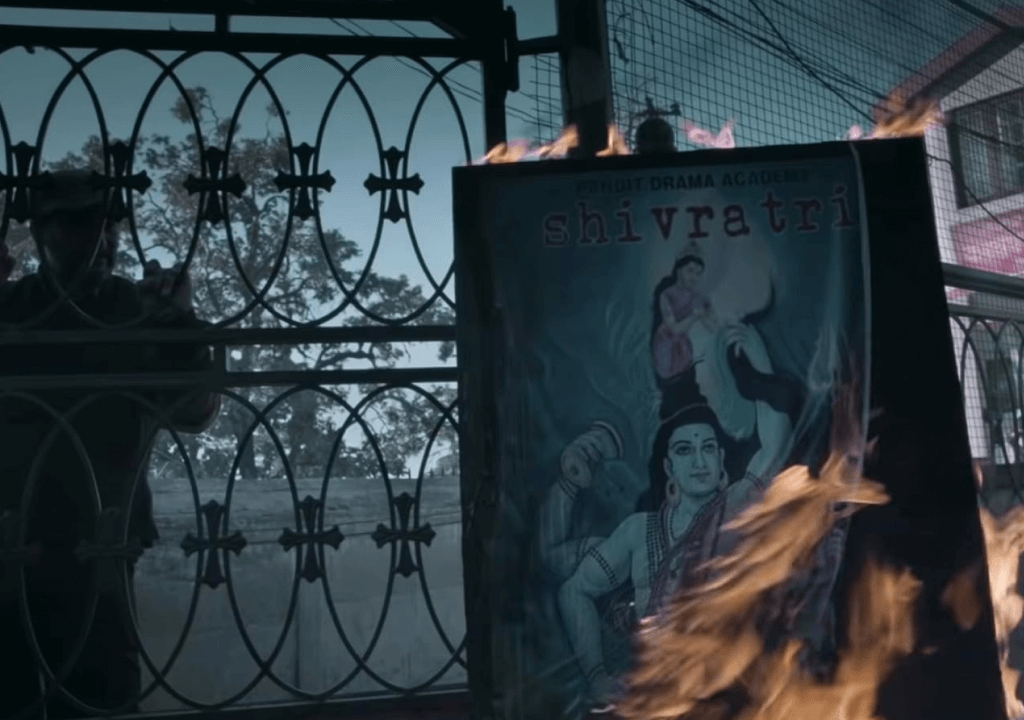India’s film industry stands as the world’s largest, annually producing an astonishing 1,500–2,000 films in over 20 languages, firmly establishing cinema as the nation’s primary form of entertainment. This pervasive medium consistently draws attention from critics, who scrutinize the complex interplay between politics and cinema in India. Particularly noteworthy is the trend of movie stars ascending to chief ministerial positions in several states, with many of them wielding considerable influence over voters.
While this tie up between cinema and politics isn’t uncommon in India, recent years have witnessed two notable trends. Firstly, regional language industries have stepped into the limelight, challenging Bollywood’s hegemony. Secondly, a surge in propaganda promoting Hindutva ideology has inundated Indian cinema, championing Modi’s leadership as the sole savior of India and portraying Hindus favorably while casting Muslims in a negative light, inundating theaters with such narratives.
“Swatantrya Veer Savarkar” is currently screening in Indian cinemas. Directed, co-written, and co-produced by Randeep Hooda, who also stars in the lead role, this Hindi-language biographical film sheds light on Vinayak Damodar Savarkar, a divisive Hindu nationalist leader and anti-colonial activist. Modi has lauded Savarkar for his resistance against British rule and promotion of Hindutva ideologies. However, Savarkar’s writings have courted controversy due to their advocacy of violence against Muslims.
Initially, Savarkar was perceived as an outsider to India’s independence movement and was met with disapproval by the Indian National Congress (INC), which considered him a betrayer of the cause and critical of Islam. However, with the announcement of the upcoming Indian elections, the film has attracted increased attention, resonating with audiences. Additionally, more films are emerging, shedding light on figures like Godse, Gandhi’s assassin, and other prominent Hindutva figures who were marginalized by the previous Indian government, all purportedly for preserving religious harmony in India.
Since Modi assumed power, Bollywood has encountered significant challenges. Following a period of romanticism and global expansion, Bollywood has experienced a decline in talent and an overreliance on star-driven movies, diminishing the quality of its output. The supporters of Nationalism and Bharatiya Janata Party (BJP) criticized Bollywood for this perceived decline and called for boycotts, prompting the industry to reassess its strategies. The iconic Khans—Shah Rukh Khan, Aamir Khan, and Salman Khan—renowned for their romantic roles, faced social media backlash for their films’ perceived sympathies towards Islam and Pakistan. Consequently, there has been a shift towards actors like Akshay Kumar, known for their portrayal of Hindu-centric patriotism. Additionally, stars from regional industries, such as Telugu actors Prabhas, Allu Arjun, Ram Charan, and Kannada star Yash, have risen to prominence in Hindi cinema, contributing to a transformation in Bollywood’s identity and a decline in the dominance of the Khans.
Recognizing the emerging trend, stars and filmmakers began producing patriotic and Hindutva-themed movies, garnering prestigious awards and support from Hindutva politicians and followers. This trend culminated in the production of films aiming to rewrite history, with releases like “The Kashmir Files” and “The Kerala Story” fueling anti-Muslim sentiment through propaganda-driven narratives. “Article 370,” released recently, celebrates Modi’s decision to revoke Kashmir’s statehood, presenting him as a decisive leader saving India from turmoil, despite criticisms
The most recent release, “Razakar: Silent Genocide of Hyderabad,” faced accusations of Islamophobia for its distorted portrayal of a Muslim leader. Similarly, “Jahangir National University”, set for release in April, portrays leftist activists as instigators of division through debunked conspiracy theories like “love jihad” and “Urban Naxalism.”
With Narendra Modi and his Bharatiya Janata Party (BJP) vying for a third term in the upcoming election, Bollywood finds itself swept up in a fervent pro-government wave, blurring the boundaries between entertainment and political advocacy. Nearly a dozen new films championing the prime minister and his government’s Hindu nationalist agenda are either already released or scheduled to hit theaters in the coming days and weeks. This surge of pro-government films echoes the atmosphere preceding the 2019 election, when a Modi biopic was halted by the election commission due to its overtly favorable portrayal of the prime minister.
Critics and analysts have denounced these films for Popagating Islamophobic Narratives and targeting leftist activists, sparking concerns within the industry about the potential exacerbation of religious divisions in India. Which will help Bharatiya Janata Party in elections.








